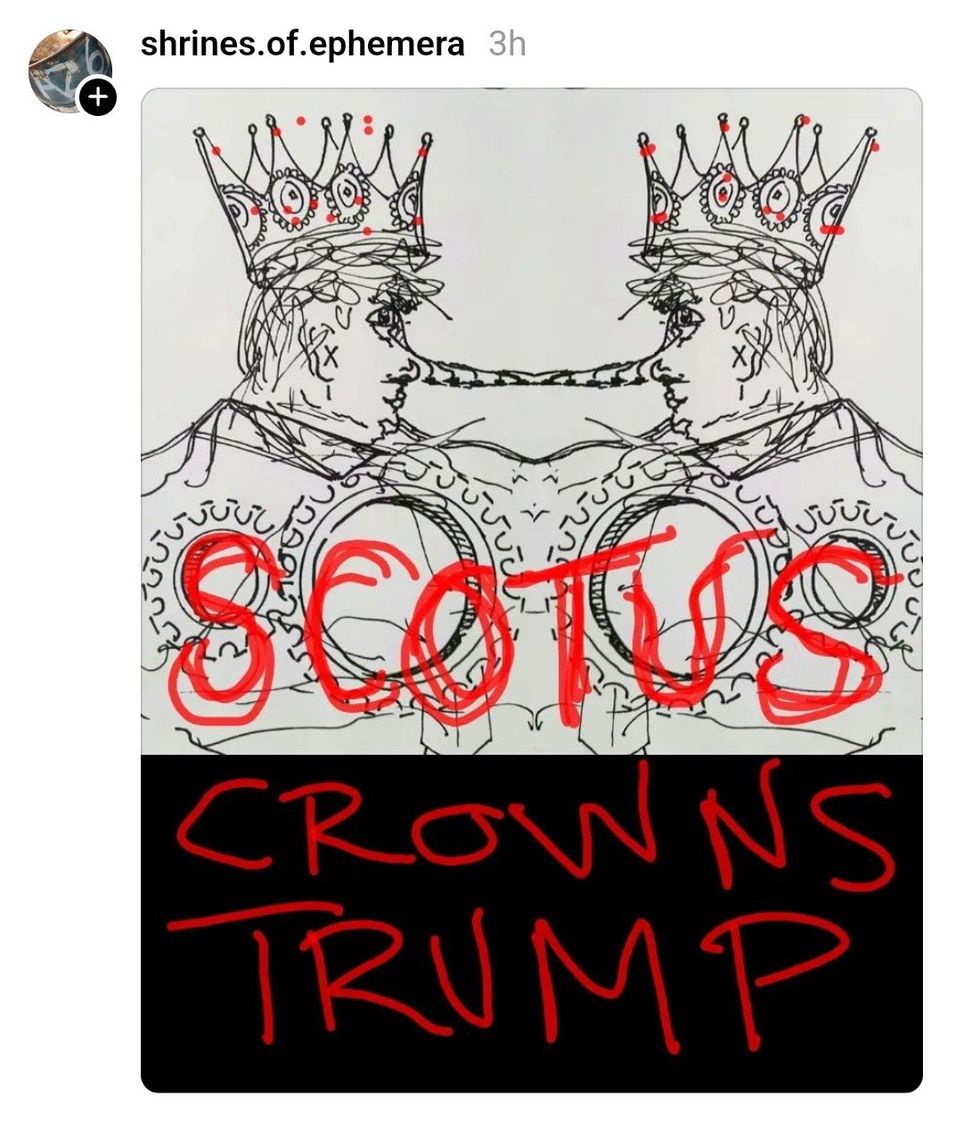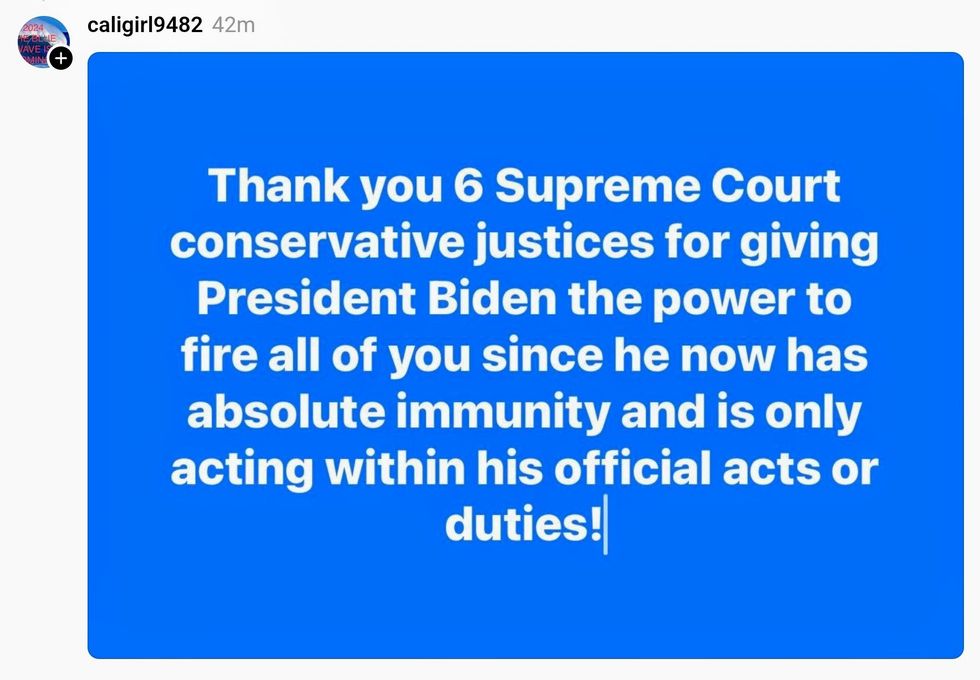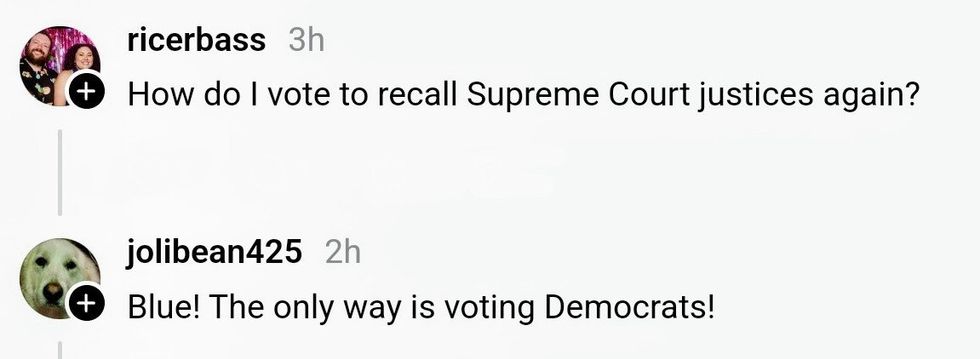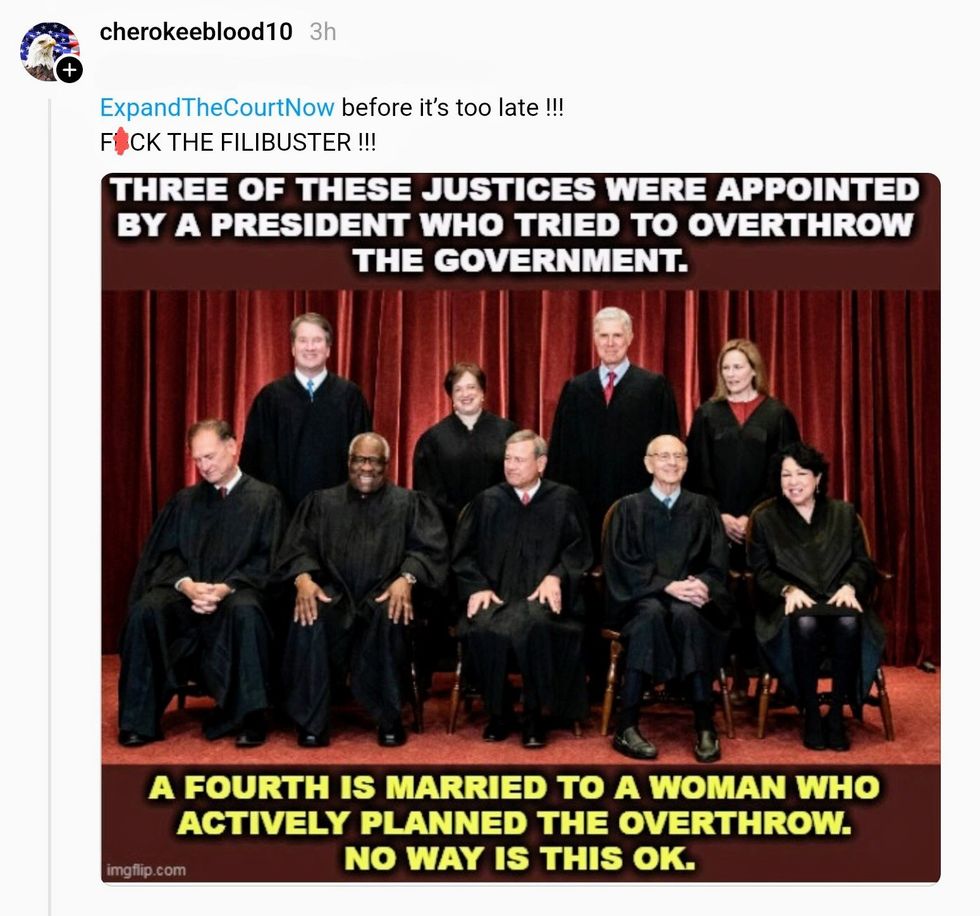In a moment that surprised few, the United States Supreme Court's conservative majority—handpicked by Christian nationalist organization the Federalist Society—ruled in favor of Donald Trump’s claim of presidential immunity.
While the conservative majority—which includes three justices appointed by Trump—limited immunity to only official presidential actions, who decides what constitutes an official presidential action leaves a troublesome amount of wiggle room.
Trump sought "absolute immunity" for the actions he took to try to overturn his loss to Democratic President Joe Biden in the 2020 election.
SCOTUS Justices Sonia Sotomayor, Ketanji Brown Jackson, and Elena Kagan all dissented in the 6-3 decision. In their written dissents, they raised serious concerns about the future of democracy.
For example, in her dissent, which has gone viral online, Justice Sotomayor wrote:
"Today's decision to grant former Presidents criminal immunity reshapes the institution of the Presidency. It makes a mockery of the principle, foundational to our Constitution and system of Government, that no man is above the law."
"Relying on little more than its own misguided wisdom about the need for 'bold and unhesitating action' by the President, ...the Court gives former President Trump all the immunity he asked for and more."
"Because our Constitution does not shield a former President from answering for criminal and treasonous acts, I dissent."

The justice—appointed by President Barack Obama in 2009—added:
"The President of the United States is the most powerful person in the country, and possibly the world. When he uses his official powers in any way, under the majority’s reasoning, he now will be insulated from criminal prosecution."
"Orders the Navy’s Seal Team 6 to assassinate a political rival? Immune. Organizes a military coup to hold onto power? Immune. Takes a bribe in exchange for a pardon? Immune. Immune, immune, immune."
"Let the President violate the law, let him exploit the trappings of his office for personal gain, let him use his official power for evil ends. Because if he knew that he may one day face liability for breaking the law, he might not be as bold and fearless as we would like him to be. That is the majority’s message today."
"Even if these nightmare scenarios never play out, and I pray they never do, the damage has been done. The relationship between the President and the people he serves has shifted irrevocably."
"In every use of official power, the President is now a king above the law."


Later in the dissent, Sotomayor stated:
"Never in the history of our Republic has a President had reason to believe that he would be immune from criminal prosecution if he used the trappings of his office to violate the criminal law."
"Moving forward, however, all former Presidents will be cloaked in such immunity. If the occupant of that office misuses official power for personal gain, the criminal law that the rest of us must abide will not prove a backstop."
Making a definitive statement, Sotomayor offered the sentiments of many, writing:
"With fear for our democracy, I dissent."
Many concurred with Justice Sotomayor's concern for the future of democracy.









In a separate dissent, the SCOTUS' newest member, Justice Ketanji Brown Jackson wrote:
"Ultimately, the majority’s model simply sets the criminal law to one side when it comes to crimes allegedly committed by the President. Before accountability can be sought or rendered, the Judiciary serves as a newfound special gatekeeper, charged not merely with interpreting the law but with policing whether it applies to the President at all."
"Also, under the new Presidential accountability model, the starting presumption is that the criminal law does not apply to Presidents, no matter how obviously illegal, harmful, or unacceptable a President’s official behavior might be."
"Regardless of all that, courts must now ensure that a former President is not held accountable for any criminal conduct he engages in while he is on duty, unless his conduct consists primarily (and perhaps solely) of unofficial acts."
Justice Jackson added:
"In short, America has traditionally relied on the law to keep its Presidents in line. Starting today, however, Americans must rely on the courts to determine when (if at all) the criminal laws that their representatives have enacted to promote individual and collective security will operate as speedbumps to Presidential action or reaction."
"Once self-regulating, the Rule of Law now becomes the rule of judges, with courts pronouncing which crimes committed by a President have to be let go and which can be redressed as impermissible."
"So, ultimately, this Court itself will decide whether the law will be any barrier to whatever course of criminality emanates from the Oval Office in the future. The potential for great harm to American institutions and Americans themselves is obvious."
She concluded with an equally stark warning as Justice Sotomayor, writing:
"The majority of my colleagues seems to have put their trust in our Court’s ability to prevent Presidents from becoming Kings through case-by-case application of the indeterminate standards of their new Presidential accountability paradigm."
"I fear that they are wrong. But, for all our sakes, I hope that they are right."
"In the meantime, because the risks (and power) the Court has now assumed are intolerable, unwarranted, and plainly antithetical to bedrock constitutional norms, I dissent."




